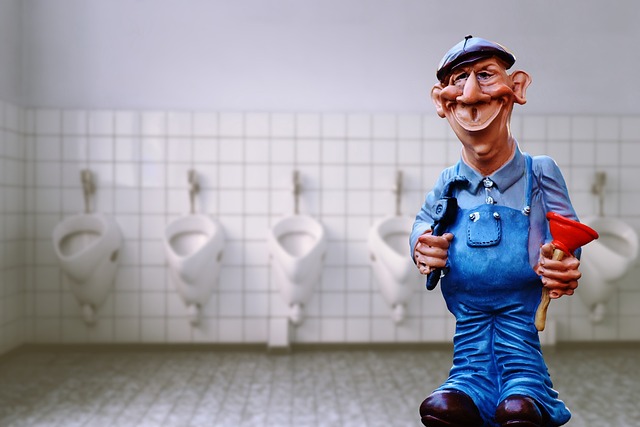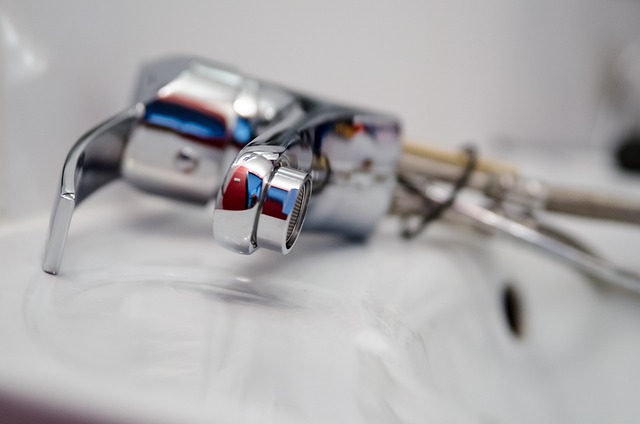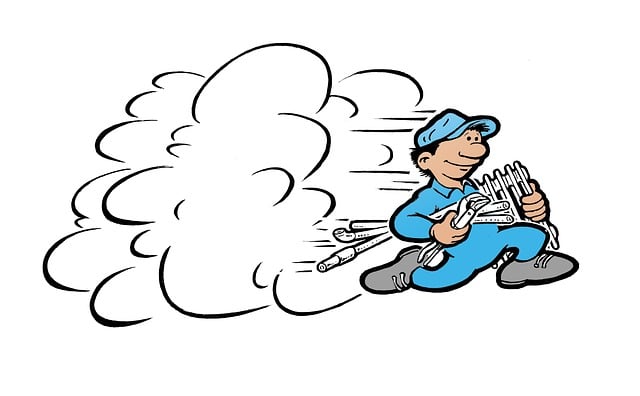Proper plumbing care through regular cleaning, inspections, and maintenance prevents clogs, leaks, low water pressure, and costly repairs. Homeowners should clear drain traps with hot water and vinegar or baking soda, check for leaks, insulate pipes in cold climates, flush water heaters, and schedule routine plumber visits to maintain an efficient, reliable plumbing system. Hiring a trusted plumber ensures professional assistance for complex issues.
As a homeowner, you rely on your plumbing system every day. To avoid costly repairs and maintain a smooth-running system, understanding common plumbing issues and implementing regular maintenance tasks is crucial. This article guides you through best practices for plumbing care, empowering you to identify and prevent problems before they escalate. From understanding frequent fixtures and pipes failures to essential maintenance routines, discover tips from industry experts to keep your home’s plumbing in tip-top shape without hiring a plumber.
- Understanding Common Plumbing Issues and How to Prevent Them
- Regular Maintenance Tasks for Optimal Plumbing System Care
Understanding Common Plumbing Issues and How to Prevent Them

Many common plumbing issues can be easily avoided with proper care and maintenance. Homeowners should be aware of potential problems like clogged drains, leaking pipes, and low water pressure. Regular cleaning of drain traps with hot water and vinegar or baking soda can prevent clogs caused by hair and grease buildup. Checking for leaks regularly and sealing any visible gaps around fixtures and pipes can stop water waste and high utility bills. Additionally, insulating pipes in colder climates prevents freezing, a leading cause of burst pipes.
A proactive approach involves scheduling routine inspections with a plumber to assess the overall health of your plumbing system. They can identify potential issues before they become major problems, saving you money on costly repairs. Regular maintenance also includes flushing water heaters to remove sediment buildup and checking for water heater leaks. By taking these preventive measures, homeowners can ensure their plumbing systems operate efficiently, reliably, and without unexpected breakdowns.
Regular Maintenance Tasks for Optimal Plumbing System Care

Regular maintenance is key to ensuring your plumbing system runs smoothly and efficiently, avoiding costly repairs. Homeowners should schedule periodic checks with a qualified plumber to inspect for any leaks, corrosion, or damage. Simple tasks like checking supply lines for moisture or rust, clearing drain traps of grease and hair buildup, and inspecting water pressure can prevent major issues down the line.
Additionally, keeping an eye on your water heater is crucial. Regular maintenance includes flushing the tank to remove sediment buildup, ensuring proper ventilation, and checking for leaks around connections. Timely care not only extends the life of your plumbing system but also saves money by preventing sudden breakdowns.
By adopting a proactive approach to plumbing care, homeowners can avoid costly repairs and maintain a reliable plumbing system. Regular maintenance, as outlined in this article, is key to preventing common issues. Remember, a well-cared-for plumbing system not only saves money but also ensures a smooth, stress-free life at home. Consider these practices your guide to becoming your own plumber and fostering a healthy, efficient plumbing environment.
